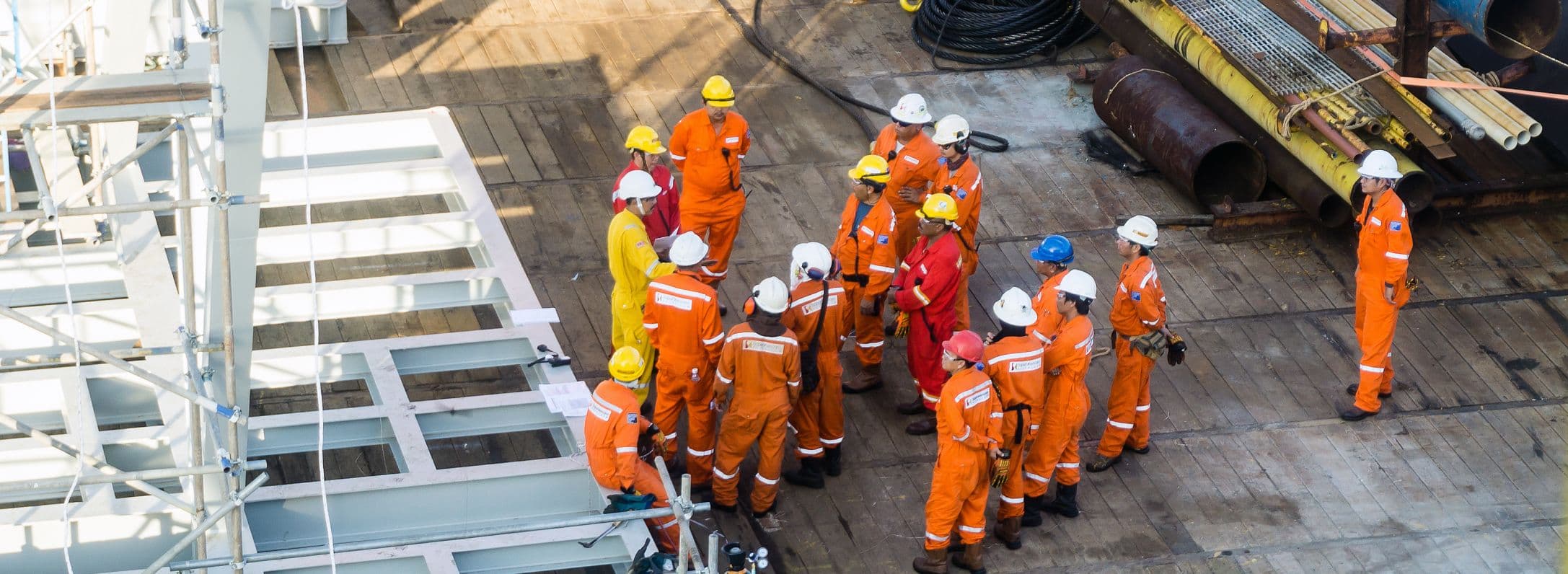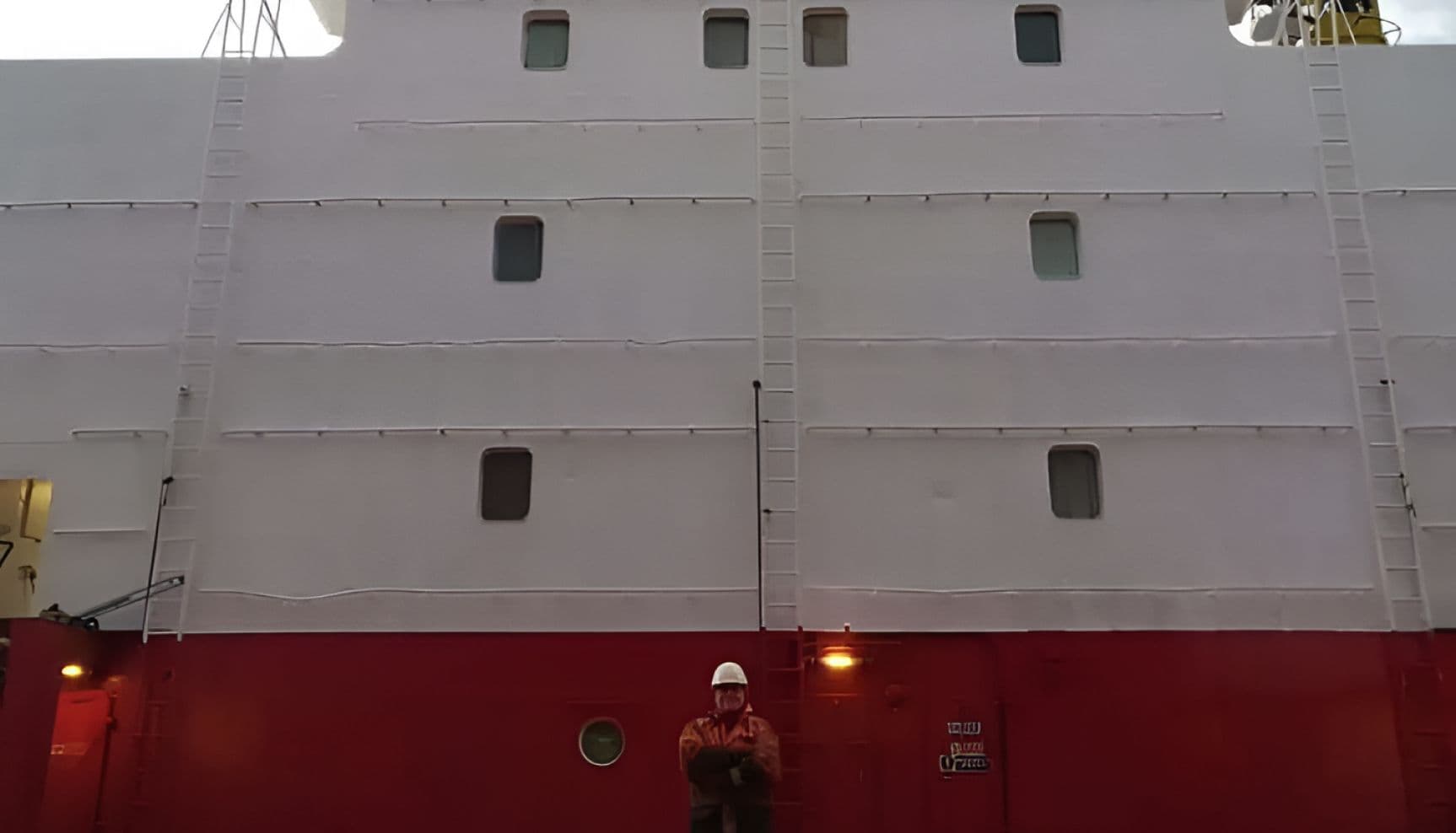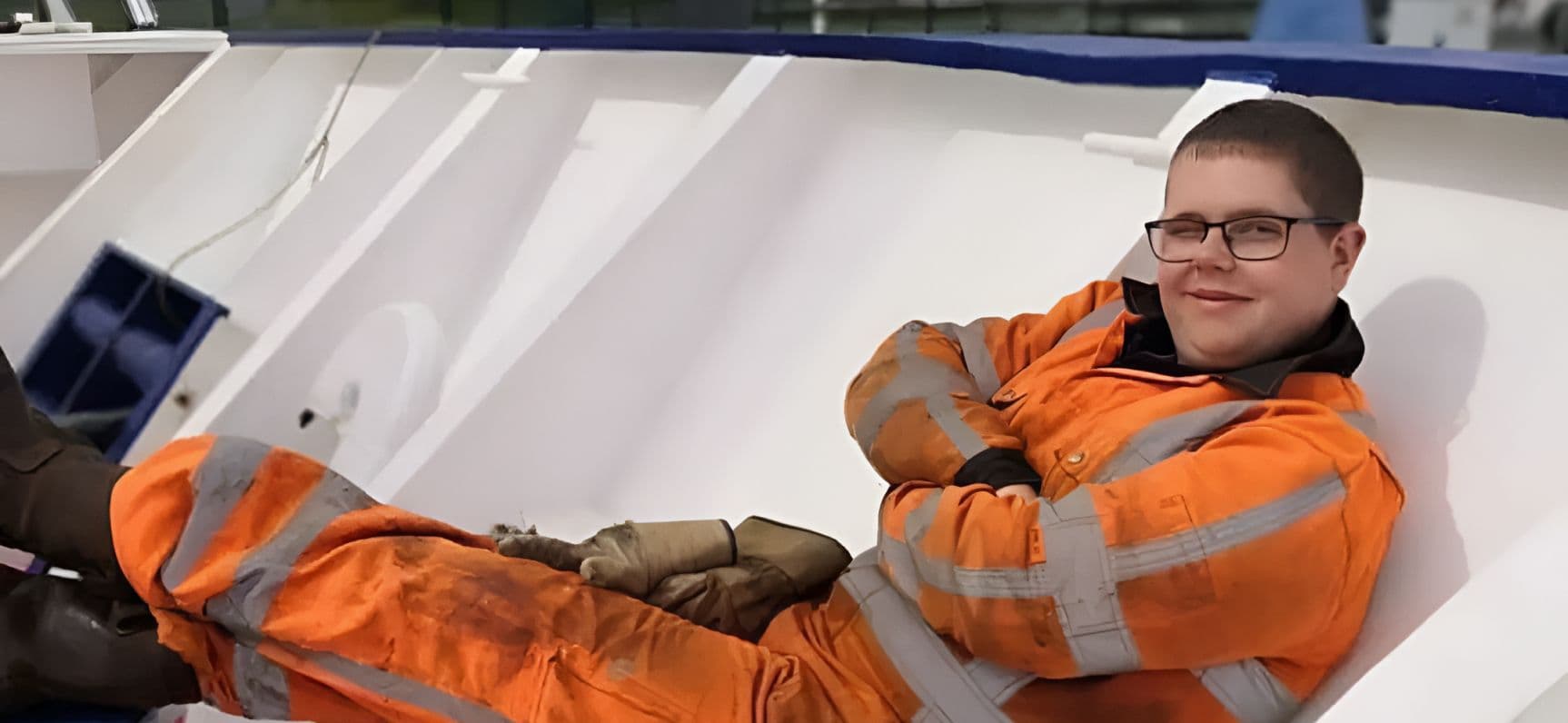Niayesh Sadrzadeh
Content Marketing Manager

Becoming a Deck Cadet: All About the Cadet Meaning and Its Sea Careers
Are you considering joining the merchant navy after your maritime studies? A logical step will be to apply for the position of deck cadet as your first job at sea to kickstart your sea career. But first, you have to understand the cadet's meaning. In this blog, we explain the deck cadet's duties and responsibilities. In a couple of minutes, you will know everything you need.
What is the cadet engineer?
Deck cadets are trainees, officers in training. They can be found on any type of vessel - offshore wind ships, heavy load carriers, oil rig drilling ships, general cargo vessels, cruise ships, and military boats. Also part of the cadet engineer meaning is different from a bosun, having the lowest rank of the entry levels of jobs offshore and not as much responsibility. But this doesn't mean they aren’t important!
Deck cadets are indispensable in daily operations and vessel running. Like a bosun, they are all-rounders. They help with different kinds of tasks on board, as former deck cadet Cor Kortekaas will tell us. While rolling up your sleeves, you learn about the processes, procedures, and protocols on board - the perfect way to taste life as a seafarer and discover which sea career path to take.
A workday in life as a deck cadet
“My working day started at 8:00 AM”, says former Deck Cadet Cor Kortekaas. “After putting on all the Ppe's (personal protective equipment, like work shoes) for the day, I checked in with the ab team to find out what we would do today. With the ab team, we do general maintenance and make preparations for the cargo if necessary. We worked until 10:00 to have a coffee with each other.”
“At 10:30, we picked up our work again. I worked until 11:15, after which I quickly freshened up and got something to eat at 12:00, waiting to start on the bridge with our second mate. We were busy navigating and preparing the necessary safety documents/drills on the bridge. At 4:00 PM, my watch was over, and I had thirty minutes for schoolwork.”
Can't wait to get started as a deck cadet?
Register for free!What are the deck cadet's duties and responsibilities?
As it became clear from Kortekaas's working day, the deck cadet's duties and responsibilities are diverse. They can vary from vessel to vessel. First of all, every officer trainee must study hard to master theoretical and technical knowledge. The officer in training can immediately apply their proficiency in practice in carrying out marine work.
“I learned to take responsibility”
Cor Kortekaas
Former deck cadet
While cadets do not bear that much responsibility in theory, they do learn to deal with it. "I had that feeling of having responsibility, and I learned to take it,” says Kortekaas. The following tasks are, in general, assigned as part of the training:
1. Navigation
An important task deck cadets assist with is ship navigation, which is part of the responsibilities of an Officer on Watch (OOW). As officers in training do not have a Certificate of Competency (COC), officers in training are not allowed to do the map-reading independently. Instead, they are under the guidance of, often, a Chief Mate. In any case, under the supervision of someone who is certified.
More OOW-duties officers in training get to learn are comparing compasses and verifying if the lookout and helmsman are alert in keeping an eye on the sea to prevent a collision. Other examples are checking the vessel's position, reading log entries, and understanding and using the Global Maritime Distress and Safety System (GMDSS).
2. Sounding of tanks
Checking sounding is also an OOW-responsibility a cadet gets to learn. This means determining the water depth under a vessel or in a tank. The trainee checks if the Under-Keel Clearance (UKC), the space between the deepest point of a ship in still water and the bottom, is at its minimum. Especially in shallow waters, this type of sounding is crucial, to ensure the vessel doesn't get stuck at the bottom.
The amount of water in the tank can be measured as well. For cargo tanks, the sounding is done to determine whether the tanks are full. Soundings can also indicate whether tanks are empty, meaning the vessel has been holed. Sounding is generally done after the 0400-0800 watch in the morning and is important for the navigation and stability of the vessel.
3. Vessel departure and arrival
Furthermore, a cadet assists with berthing and casting off the vessel, an operation that needs to be done properly and quickly. The trainee plays a role in the preparation of mooring and dropping off. For an inexperienced deck cadet, the work is mostly physical. After the novitiate, the trainee takes more of the role of a supervisor in communicating the captain's orders and looking after the (un)loading.
4. Ship maintenance
Seafarers who once started their sea career as deck cadets know that maintenance duties are designated to the officers in training. Our blog on becoming a bosun tells us about the widespread deck work. Cadets assist the bosun with deck painting, cleaning, splitting ropes, and making parts of the vessels and materials corrosion- and rustless. There is always something to maintain on board!
5. Safety operations
Cadets also need to take a role in daily security operations. In addition to the need to know the protocols well, the officers in training are also given a certain responsibility when carrying out safety inspections. Think about detecting any issues, checking the expiration date of equipment, repairing devices, and ordering material if needed.
The purpose of such a responsibility in security operations is that cadets are confronted at an early stage with the importance of their safety and the protection of colleagues. The trainees are made aware of the sometimes dangerous and precarious activities on board and the possible disastrous consequences when safety is not guaranteed.
6. Cargo work
Being a deck cadet doesn’t only mean doing offshore work. Sometimes, you have to assist off-board in the harbor. On the one hand, the trainees serve as a port watch in helping the chief officer with cargo work. They monitor the loaded and unloaded cargo by registering the precise loading and unloading moments and by calculating the cargo.
7. Administration
Lastly, trainees help third officers with their shipping paperwork. The administration has increased considerably in recent years, so managers can use a helping hand. Cadets update the Muste list, a list of the operations that each crew member must perform in an emergency. In addition, they keep a logbook of the cabin keys and divide the waiting and rest hours among the crew.
Helping with paperwork also means ensuring that the crew's bail and statements are stamped and signed. In addition, the documents must be kept ready with a considerable number of photocopies. Small tasks like copying are not the most inspiring and challenging, but it is also part of it! You need to learn to obey and to do things you don't like, which are necessary if you want to be part of the crew.

What skills do you need as a deck cadet?
“The biggest challenge of being was my first internship: learning how everything works, how life is on board, and what others expect from you,” says Kortekaas. Not surprisingly, because in your first job as a deck cadet, you don’t have that many competencies yet. Officer training is a way to gain skills, such as technical skills. However, the following are useful to have already to some extent.
1. Communication skills
At the very least, you have to be a communicative person. The crew you are working with is made up of colleagues from all over the world, with different backgrounds, cultures, and habits. You will meet many new people who may be different from you, friends, and family. Open yourself up and learn from new encounters, to enrich your professional and personal life.
Good communication between you and your supervisor is crucial as well. You have to directly communicate your availability, your work, and the issues you encounter. And you need to deal with hierarchy, where you are in one of the lower positions. Being able to receive and execute orders is also part of this. You need to be a team player to work with your director and colleagues.
2. Organizational skills
In performing your duties, organizational skills should not be missing. There are a lot of different kinds of things to do daily. Therefore, cadets need to structure their to-do list and prioritize certain tasks. This also includes, while you already have a busy schedule, being able to respond ad hoc by taking on unforeseen necessary activities.
3. Physical stamina
Also very important to have is physical stamina. While the job of every seafarer is very physical, the work of a deck cadet is even more. Like deckhands, the trainee is the one to whom executive work is delegated, where you have to climb many stairs and do the heavy lifting. Different from a bosun who can take on a more managerial role and outsource the more physical work.
“You must be a go-getter and be able to stay away from home for a long time”
Cor Kortekaas
Former deck cadet
4. Mental stamina
Lastly, mental stamina will help you through your traineeship, as marine work demands discipline. Especially at the beginning of your sea career, everything can be overwhelming. You have to handle the hierarchy and responsibility, the ad-hoc chances, homesickness, and the long working days. Kortekaas: “You must have perseverance and be able to be away from home for a long time.”
Ready for a deck cadet job? Set up your Crewlinker profile now
Start now for freeHow to become a deck cadet: deck cadet vacancy and go network
Did you get excited? Great! Let’s help you find a traineeship. Crewlinker will be the right place for you. We are a seaman job site, where you can find marine work and get in touch with offshore employers. You can apply for jobs offshore or be invited.
There might be a deck cadet vacancy waiting for you! You don't need many certificates to get started as a deck cadet. However, Kortekaas notes: "Your seaman's book and basic safety training are important.” Don’t you have a Crewlinker account yet? Make an account for free! Before you can find marine work via Crewlinker, download and share your profile.
“The best thing was doing my passion”
Cor Kortekaas
Former deck cadet
In the meantime, go to career events to orientate yourself. Companies often search for motivated maritime officer students or graduated seafarers. Go network with a marine engineer, a driller offshore, a ship captain, and other seafarers. They may know people needing a helping hand. And show your devotion, as Kortekaas describes his trainee: “The most fun is doing something that is my passion.”
Start your job search today!
Check out all vacanciesKortekaas has, in the meantime, found a new job as a bridge keeper. Did his time on board as a deck cadet help him discover what he wants in his further sea career? “Yes, but I would like to try another sector one more time before I make a final decision in which direction I am going.”
